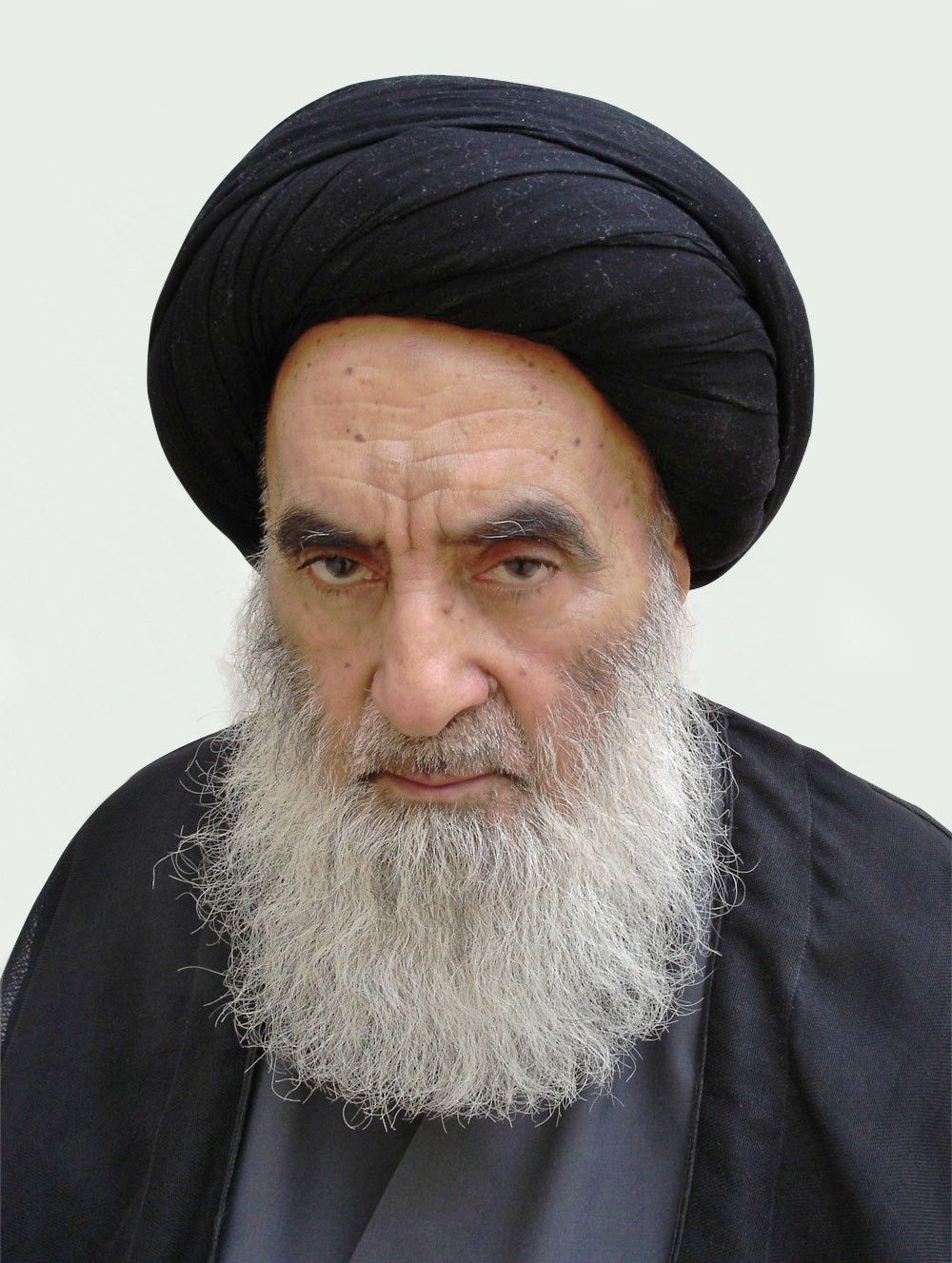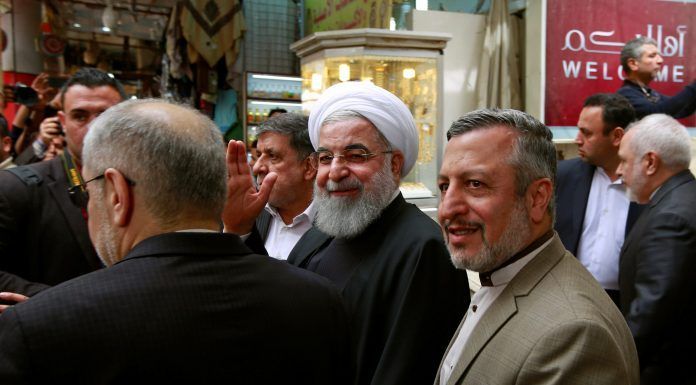BAGHDAD, March 13 – Iraq’s top Shi’ite cleric told Iranian President Hassan Rouhani on Wednesday that Iraqi sovereignty must be respected and weapons kept in state hands, a veiled reference to increasingly influential Iran-backed militias.

It was the first meeting between an Iranian president and the 88-year-old Grand Ayatollah Ali al-Sistani, who rarely weighs in on politics but exerts wide influence over Iraqi public opinion.
Sistani welcomed “any steps to strengthen Iraq’s relations with its neighbours … based on respect for the sovereignty of the countries and no interference in domestic affairs”, a statement from his office said.
“The most important challenges facing Iraq are fighting corruption, improving services and keeping weapons in the hands of the state and its security services,” it added.
The meeting came on the third day of a visit by Rouhani to Iraq which aimed to project Iran‘s political and economic dominance in Baghdad and expand commercial ties to help offset renewed U.S. sanctions meant to isolate and weaken Tehran.
Iran and Iraq, both majority Shi’ite Muslim countries, signed several preliminary trade accords on Monday, Iraqi officials said, including deals on oil, health, and a railway linking the southern Iraqi oil city of Basra and an Iranian border town.
Sistani’s comments will chime with the concerns of many Iraqis that powerful Shi’ite militias, which are increasing their military and political influence after the defeat of Sunni Muslim extremist group Islamic State (IS), remain subservient to their Iranian patrons.
Sistani issued a decree in 2014 calling up Iraqis to volunteer to fight against Islamic State. Many answered the call, joining mostly Shi’ite paramilitary groups.
Since the U.S.-led invasion of Iraq that toppled dictator Saddam Hussein in 2003, Iran has come to dominate Iraqi politics through allies in the government and parliament and has built up considerable influence over parts of the security forces.
Dozens of mainly Iran-backed paramilitary groups which played a key role in defeating IS in 2017 were brought formally into the security forces last year. Critics say they have also begun to control parts of the economy. The groups deny this.
Iran is striving to shore up control of a corridor of territory from Tehran through Iraq and Syria to Lebanon where it holds sway through allies including those militias.
Most Iran-backed Iraqi militias say they are no longer funded or equipped by Iran and serve only to defend Iraq and its Shi’ite holy sites.
(Reporting by John Davison Editing by Mark Heinrich)


